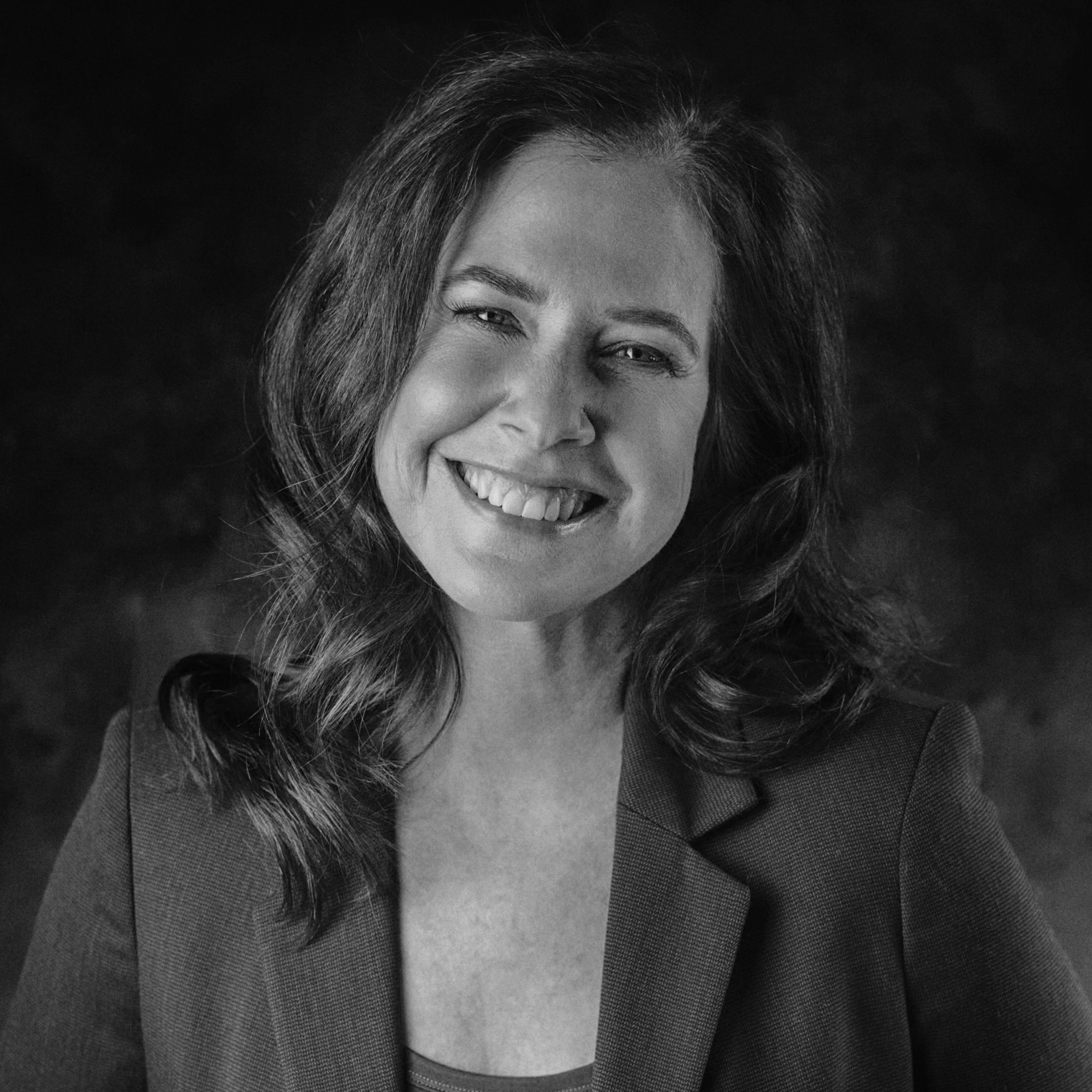Life will throw you a curve ball — there's no question about that. Whether you'll have insurance when it does is another matter entirely.
Insurance buffers you from unexpected costs like medical expenses. And while most people know that insurance is important, only some know the different types of insurance that are available and how they can help.
Here are seven types of insurance and reasons you might need them.
Health Insurance
Health insurance is crucial in managing medical expenses and protecting your financial well-being during illness or injury. With the rising cost of healthcare, having a health insurance policy may help you and your family access timely and quality medical care without breaking the bank. Without health insurance, you could end up with enormous medical bills and a mountain of debt.
Health insurance premiums may be tax-deductible, depending on your income and other factors. Health Savings Accounts (HSAs) also offer tax perks for medical expenses, allowing you to save money for future healthcare needs.
Here are the major types of health insurance plans:
- Health Maintenance Organizations (HMOs): HMOs require you to choose a primary care physician (PCP) and typically offer lower out-of-pocket costs but have limited networks and require referrals for specialists.
- Preferred Provider Organizations (PPOs): PPOs offer more flexibility in choosing healthcare providers but come with higher out-of-pocket costs.
- Exclusive Provider Organizations (EPOs): EPOs have a limited network of providers but generally don't require referrals for specialists. They offer a balance between HMOs and PPOs in terms of costs and flexibility.
- Point of Service (POS) Plans: These plans combine features of HMOs and PPOs, requiring a PCP and offering both in-network and out-of-network coverage.
Expert Perspective
Michael Stahl, Executive VP and CMO of HealthMarkets:
“Having adequate health insurance is a must. HealthMarkets recently conducted a survey that asked more than 1,700 people of various ages, locations, and backgrounds throughout the United States about their health insurance plans and the coverage(s) provided. HealthMarkets found the following results:
- Uninsured respondents frequently had higher costs for emergency medical care but were the least likely to be able to afford it.
- More than 80% of uninsured respondents who had an emergency could not afford the costs or required six or more months to pay the bills.
- While Medicare and Medicaid recipients were the least likely to have to pay for emergency costs, when they did, they were the least able to afford it out of the insured population.
- Those on Medicare or Medicaid were two times more likely not to be able to afford emergency costs compared to those with employer-provided plans.
- More Medicare or Medicaid recipients had lost monthly premiums and low monthly out-of-pocket costs than those on employer-provided or Affordable Care Act (ACA) plans.”
Auto Insurance
Auto insurance is a vital component of responsible vehicle ownership for individuals and families. It provides financial protection for accidents, theft, or other incidents involving your vehicle. It helps you meet potential liabilities and ensures you can return to the road quickly and safely.
Financially, it covers repair or replacement costs for your vehicle and any damages you may cause to others. Liability coverage is crucial, as it can protect you from substantial financial losses if you are found responsible for an accident.
Not having auto insurance may lead to severe consequences, including fines, license suspension, and even jail time in some states. Additionally, you may be held personally responsible for any damages caused in an accident, which could result in significant debt.
Here are some of the major types of auto insurance coverages:
- Liability coverage: This coverage is mandatory in most states and covers bodily injury and property damage to others in an accident you cause. There are two types of liability coverage: bodily injury liability (BIL) and property damage liability (PDL).
- Collision coverage: This optional coverage pays for damages to your vehicle resulting from a collision with another car or object, regardless of who caused the accident, or from a rollover accident. It usually requires an out-of-pocket deductible before the insurance coverage kicks in.
- Comprehensive coverage: Another optional coverage, comprehensive insurance covers damages to your vehicle caused by events other than collisions, such as theft, vandalism, fire, or natural disasters. It typically includes a deductible.
- Uninsured/underinsured motorist coverage: This type of coverage protects you if you're involved in an accident with a driver without insurance or insufficient coverage. It covers bodily injury and property damage, which is required in some states.
- Gap insurance: If you have a loan or lease on your vehicle, gap insurance covers the difference between the actual cash value of your car and the remaining balance on your loan or lease if your vehicle is totaled in an accident.
Expert Perspective
Prosper Shaked, owner of The Law Offices of Prosper Shaked:
“The number of uninsured or underinsured drivers in many states is staggering. This is especially true in states like Florida, which do not require that vehicles carry bodily injury coverage.
Uninsured motorist coverage applies when the at-fault driver either lacks bodily injury coverage or fails to maintain a bodily injury policy with enough coverage. As a personal injury attorney in Florida, I handle many unfortunate cases involving individuals who suffered injuries due to motor vehicle collisions. More than half of my clients cannot pursue a claim against the at-fault driver and vehicle owner because these at-fault individuals did not carry bodily injury coverage. In these situations, the injured individuals cannot successfully pursue a claim for their injuries and damages against the at-fault parties. These individuals are often left with mounting medical bills that they are forced to pay out of their own pocket. This can lead to financial ruin, all because of some other person's negligence. However, if the injured individual carries uninsured motorist coverage, they will have an insurance policy that will cover their medical bills, lost wages, pain and suffering, and any other damages they sustained as a result of the motor vehicle collision.
Uninsured motorist coverage also provides an additional layer of protection if the at-fault parties do not have sufficient bodily injury coverage. This is helpful when the at-fault party carries minimal bodily injury coverage (e.g., $10,000) and the injured person's injuries and damages far exceed that amount. The uninsured motorist policy provides extra funds to pay for the damages that run in excess of the minimal bodily injury policy.
Drivers need to purchase uninsured motorist coverage to protect themselves and their passengers from the growing number of uninsured or underinsured drivers on the road today. I find myself having many difficult conversations with my clients, explaining that I cannot pursue a claim on their behalf because the at-fault parties lack any bodily injury coverage. It is a tragic outcome, especially when there are catastrophic life-changing injuries.”
Life Insurance
Life insurance offers financial security for your loved ones if you pass away. It can replace lost income, help cover funeral expenses, and pay off outstanding debts like mortgages and loans. While there are no federal or state requirements for life insurance, it's a crucial consideration for those dependent on someone else’s income. Additionally, life insurance can help fund critical long-term goals, such as children's education or a spouse's retirement.
The tax benefits of life insurance are an attractive aspect of this financial product. Life insurance death benefits are generally not subject to income tax, which means your beneficiaries can receive the total amount without any deductions. Some policies, like whole life and universal life, also offer tax-deferred growth, allowing your cash value to accumulate without being taxed until you withdraw the funds.
Here are some of the most common types of life insurance plans:
- Term life insurance: This type of policy covers a specified term, typically 10, 20, or 30 years. It's the most affordable option and offers a straightforward death benefit without any cash value component.
- Whole life insurance: As a permanent life insurance policy, whole life insurance covers your entire lifetime. It includes a guaranteed death benefit and a cash value component that grows over time. Premiums for whole life insurance are generally higher than those for term life insurance.
- Universal life insurance: This is another form of permanent life insurance that offers more flexibility than whole life insurance. You can adjust your premiums and death benefit within certain limits, and the cash value component can grow based on market interest rates.
- Indexed universal life insurance: Similar to universal life insurance, indexed universal life insurance offers a cash value component that grows based on the performance of a market index, such as the S&P 500. It has a cap on potential earnings and includes a floor to protect against market losses.
Expert Perspective
Jason Fisher, founder and owner of BestLifeRates.org:
“Life insurance is one type of insurance that is readily available, and yet, its benefits are often overlooked. People tend to think of life insurance only as the means to pay final expenses. Although this is true, one of the more compelling reasons to purchase life insurance is to replace lost income for those dependent upon that income to help keep the bills paid or to pay off debt.
An often overlooked expense when someone passes their property on to their heirs is estate taxes. Sufficient life insurance provides a way to pay these taxes. It's wise to consider if the amount of your estate is large enough to warrant the need to cover estate taxes.
Life insurance is also a way for parents to ensure that their kids can still go to college if something happens to one or both of them.
Then there are insurance policies that will accumulate cash value. The accumulated cash value can be borrowed in lieu of taking out a loan when you're short on cash.
A substantial life insurance policy can also protect against business loss for a business owner. Effectively, a key-man policy ensures that if a business partner/partners or key employee/employees are lost in a fatality, the remaining partner/partners would have the financial resources to continue the business and find replacements for those individuals.”
Homeowners Insurance
Homeowners insurance is crucial because it covers your home and personal belongings if unexpected events like theft, natural disasters, or accidents occur. It also offers liability coverage to protect you from financial loss if someone gets injured on your property. While there are no federal or state requirements for homeowners insurance, mortgage lenders typically require it as a condition for approving a loan, ensuring that their investment is protected.
The financial benefits of homeowners insurance are numerous. It covers the cost of repairing or rebuilding your home in the event of damage and replacing personal belongings in the case of theft or destruction. Liability coverage is another significant aspect of homeowners insurance, as it protects you from substantial financial losses if you are found responsible for an injury that occurs on your property.
Here are some additional types of coverages to consider:
- Flood insurance: Standard homeowner's policies do not cover flood damage. Flood insurance is a separate policy that provides coverage for damages caused by flooding, and are typically offered through the National Flood Insurance Program (NFIP) or private insurers.
- Earthquake insurance: This separate policy or endorsement covers damages to your home and personal belongings resulting from earthquakes. Standard homeowners policies do not include earthquake coverage.
- Scheduled personal property endorsement: This endorsement extends coverage to high-value items like jewelry, artwork, or collectibles, which may not be adequately covered under the standard personal property limits of your homeowners policy.
- Sewer backup coverage: This is an optional endorsement that covers damages caused by sewer or drain backups, which are generally not covered by standard homeowners insurance policies.
- Home business coverage: You may need extra coverage for business-related equipment and liability if you run a business from home. Home business coverage can be added to your homeowners policy or purchased separately.
Expert Perspective
Stacey A. Giulianti, Esq., CLO of Florida Peninsula Insurance Company:
“One of the most overlooked forms of insurance for residential property owners is flood insurance — even in areas that are not considered 'flood zones.' Almost one of every four flood claims occur in areas not designated as flood zones. Flooding causes significant damage and injuries in the United States, and it's not covered under the standard homeowners insurance policy. According to FEMA, just one inch of floodwater in a home can cause up to $25,000 worth of damages.”
Renters Insurance
Renters insurance is like homeowners insurance, but for people who rent rather than own their homes. Like homeowners insurance, renters insurance is important because it covers your personal belongings in the event of theft, fire, or other disasters. While your landlord's insurance policy typically covers the building, it does not extend to your possessions. Renters insurance also includes liability coverage, which protects you from financial losses if someone is injured on your rented property. Although there are no federal or state requirements for renters insurance, some landlords may require it as part of the lease agreement.
Here are some key features of renters insurance policies to consider:
- Personal property coverage: Protects your belongings from theft, fire, and other covered events. You can choose between actual cash value coverage, which pays the depreciated value of the item, or replacement cost coverage, which pays the cost of replacing the item with a new one.
- Liability coverage: Renters insurance includes liability coverage, which protects you from financial losses if someone is injured on your rented property and you are found responsible.
- Additional living expenses (ALE) coverage: This coverage pays for temporary housing and other expenses if your rental unit becomes uninhabitable due to a covered event.
- Optional endorsements: Renters insurance policies may offer optional endorsements for specific needs, such as increased coverage for high-value items, water backup coverage, or identity theft protection.
Expert Perspective
Colby Hager, owner of Capstone Homebuyers:
“I am acutely aware of one often overlooked type of insurance: renters insurance. Renters insurance is generally not required, which is why it is commonly overlooked. However, tenants' belongings are not covered by the owners' property insurance policies. In the event of a flood, natural disaster, burglary, fire, or other mishaps, tenants' belongings are at risk.
Generally speaking, a renters policy is relatively low cost and can provide a great deal of peace of mind should an accident or other event occur.”
Umbrella Insurance
Umbrella insurance is an additional layer of protection that extends the liability coverage of your existing auto, homeowners, or renters insurance policies. It offers coverage for large liability claims or legal judgments that exceed the limits of your primary insurance policies. While there are no federal or state requirements for umbrella insurance, it's particularly valuable for those with significant assets or high-income earning potential who risk costly lawsuits.
The financial benefits of umbrella insurance are significant, as it can protect you from substantial financial losses resulting from claims or lawsuits that go beyond the coverage limits of your primary insurance policies. By providing extra liability coverage, umbrella insurance ensures that your personal assets and future earnings are safeguarded in the event of an unfortunate incident.
Here are some key features of umbrella insurance policies to consider:
- Coverage limits: Umbrella insurance policies typically start with a coverage limit of $1 million and can go up to $5 million or more, depending on the insurer and your specific needs.
- Worldwide coverage: Most umbrella insurance policies offer worldwide coverage, meaning you are protected even when traveling outside your home country.
- Legal defense costs: Umbrella insurance usually covers the legal defense costs associated with a covered claim or lawsuit in addition to the policy's coverage limit.
- Exclusions: Like any insurance policy, umbrella insurance has specific exclusions. It generally does not cover intentional or criminal acts, damages covered by workers' compensation, or business-related liability.
Expert Perspective
Logan Allec, CPA and owner of Money Done Right:
“Think of an umbrella insurance policy as extra insurance for your insurance. For example, let's say you get into a car crash with a 2019 Honda Accord. Your auto insurance will likely pay for all of the damages covered in this case. Now, let’s instead imagine that the other car that you crashed into is a Lamborghini. Your insurance might not cover the total damage in that situation. Rather than paying out of pocket, your umbrella insurance policy will kick in and cover the difference. While not a likely scenario, an umbrella policy here could save you thousands of dollars.
In other words, your umbrella insurance policy will add extra protection to your existing insurance policies in case you are in a situation where your standard insurance policy just is not enough.”
Travel Insurance
Travel insurance is helpful because it offers protection against unexpected occurrences that can disrupt or derail your trip. These include medical emergencies; trip cancellations, interruptions, or delays; baggage losses or delays. While there are no federal or state requirements to have travel insurance, it is highly recommended for international travel or trips involving significant financial investments.
The financial benefits of travel insurance are substantial, as it can save you from incurring significant expenses due to unforeseen events. Emergency medical treatment, evacuation, or repatriation can be costly, and travel insurance can help cover these costs. Moreover, it reimburses non-refundable trip expenses if you have to cancel, interrupt, or delay your trip for covered reasons.
Here are some different types of travel insurance coverage:
- Single trip coverage: This policy covers one trip, making it suitable for occasional travelers. It usually includes trip cancellation, interruption, medical, and baggage coverage.
- Annual or multi-trip coverage: This policy covers multiple trips within a year, making it a cost-effective option for frequent travelers. It typically includes similar coverage as single-trip policies but may have some limitations on the duration of each trip.
- Medical-only coverage: This policy focuses solely on covering medical emergencies and evacuations without trip cancellation or interruption benefits. It's ideal for those with existing trip cancellation coverage through credit cards or other sources.
- Cancel-for-any-reason (CFAR) coverage: This optional add-on allows you to cancel your trip for any reason, not just the covered reasons in standard policies. It typically reimburses a percentage of your non-refundable trip costs.
- Specialized coverage: Some policies cater to specific types of travel, such as adventure travel, cruises, or student travel. These policies may offer additional coverage tailored to the unique risks associated with those activities.
Expert Perspective
Joel Ohman, CEO, CFP® and founder of Insurance Providers:
“One type of insurance that is often overlooked is travel insurance. Conversely, sometimes people buy travel insurance when they don't need it. Unless you are very familiar with the benefits you already enjoy with your other current insurance policies, credit card benefits, membership programs, etc., then you could potentially end up buying a policy that has some duplication of benefits.
The vast majority of typical major medical health insurance policies only offer a travel insurance element to the extent that it involves emergency care. There are usually very restrictive provisions on what is and isn't covered, so those who are planning to travel would do well to purchase a separate travel insurance policy with the specific benefits that they are looking for.
Some of the things to look for in a travel insurance policy include the following major types of travel insurance coverage: major medical, accident, evacuation (immediate transport home in the event of a major illness or accident), and trip cancellation/interruption. Each of these different elements can be purchased separately or combined as a package policy. One major pro to purchasing a comprehensive travel insurance policy is simply peace of mind.”
Bottom Line
When life happens, make sure you're covered. So take a look and find the right type of insurance to fit your needs.
Article contributors
Logan Allec is a CPA, personal finance expert, and owner of the website Money Done Right. After spending his twenties grinding it out in the corporate world and paying off more than $35,000 in student loans, he dropped everything and launched Money Done Right in 2017. His mission is to help everybody — from college students to retirees — make, save, and invest more money. He currently resides in the Los Angeles area with his wife Caroline and son Hunter.
Jason Fisher is the founder and CEO of BestLifeRates.org, one of the nation's largest and independent consumer resources for life insurance. Licensed in more than 30 states, Fisher has a particular interest and experience in estate planning, business continuation plans, and other advanced cases. It's his goal to provide a personalized approach to understanding life insurance, whether working directly with clients or providing the platform for them to shop independently.
Stacey A. Giulianti, Esq. is the chief legal officer at Florida Peninsula Insurance Company, where he oversees the claims, special investigations, and legal departments. He founded the company with his partners in 2005 and has since helped it grow to become the 6th largest homeowners insurance company in Florida. Giulianti graduated from the University of Miami School of Law cum laude and has been a member of the Florida Bar since 1993. He is the author of Florida Insurance Law.
Colby Hager, owner of Capstone Homebuyers in San Antonio, TX, and has been a professional real estate investor since 2007. After graduating from Texas A&M University, he relocated to San Antonio and began buying and renovating dilapidated houses. He has worked with the City of San Antonio’s Office of Historic Preservation to keep remodels period-appropriate. He also owns and manages a portfolio of residential rental property including single-family and multifamily housing.
Joel Ohman is a certified financial planner™ based in Tampa, FL, and the founder of InsuranceProviders.com.
Sara Redding Ochoa, DVM, graduated from St. George’s University with a Doctorate of Veterinary Medicine in 2015. Since veterinary school, she has worked at a small animal and exotic veterinary clinic in east Texas, where she has experience treating a wide range of different animals. She currently sits on the advisory board for DogLab.
Prosper Shaked is a personal injury attorney and owner of The Law Offices of Prosper Shaked located in Miami, FL. Shaked is a former criminal prosecutor who now represents individuals who have suffered catastrophic injuries recover damages from large insurance companies. He often represents individuals who have been unlawfully denied insurance benefits or have been treated unfairly by their insurance carriers.
Michael Z. Stahl serves as executive vice president of HealthMarkets — one of the nation’s largest independent insurance agencies in the Medicare; individual; and supplemental health, life, and small group insurance markets. He has a bachelor’s degree in economics from The Wharton School, University of Pennsylvania and holds the chartered property casualty underwriter (CPCU), associate in insurance accounting and finance (AIAF), and associate in reinsurance (ARe) designations. An avid Kansas City Royals fan, he lives in Dallas with his wife and children.












